The U.S. is the world’s largest customer, purchasing $425 billion in goods and services each year. The federal government aims to spend close to a quarter of that budget on the goods and services that small businesses provide, so securing a government contract can be a huge boost and opportunity for your business.
You may already have some agencies in mind to collaborate with as a potential government contractor, but are you prepared for the process? This blog post will help you to get all your ducks in a row to secure a government contract — all before you decide to respond to an RFP, or request for proposals. Let me preface this blog post by saying that a lot of the content here may vary based on the state you’re located in. Please visit your state and city’s business registration and licensing department to confirm the steps you should take.
What Is an RFP?
A request for proposals, or RFP, is when a company or a government agency requests proposals for a certain task or project to be completed. Companies respond to the RFP with bids that outline a budget, timeframe, and other requirements for completing the task, and the original company or government then chooses the bid that seems most reasonable. And this is how the federal government solicits business, both to ensure that a more diverse group of companies can bid and to keep costs competitive.
Completing an RFP can feel like you’re navigating a long maze, and the GSA (General Services Administration) has information on how to search for RFPs and how to navigate the RFP process. Along with that site, the following steps can help you to ensure that you’re better prepared and that you put your best foot forward when responding to RFPs.
1. Have a Certificate of Good Standing
Also known as a certificate of status or a certificate of existence, a certificate of good standing is issued by a state agency and verifies that your business is authorized to conduct business in your state. It signifies that appropriate fees have been paid and all state registration and other necessary documentation has been completed. If you have a limited liability company (LLC) or a corporation, you would most likely be required to obtain such a registration, but if you have a sole proprietorship, you might not. Note: a certificate of good standing is not the same as a business license.
2. Industry-Related Compliance and Credentials
Especially when working with the government, making sure that your business has the proper industry-related compliance is a must. Having the proper credentials (e.g., licenses, work experience, professional memberships, and/or academic degrees or certifications) can increase your credibility.
3. A Completed W9 Form
If you have subcontractors or contracting relationships with your clients or other businesses, you’re probably familiar with this form. The IRS W-9 form, Request for Taxpayer Identification Number and Certification, is for contractors. Businesses use this form so they can report to the government how much income they pay to contractors. You will need to complete this form to get paid. If you have subcontractors for any sort of work, they will be required to fill out this form as well.
4. An Employer Identification Number (EIN)
An Employer Identification Number (EIN), also known as a Federal Tax Identification Number or Federal Employer Identification Number (FEIN), is a number assigned by the IRS for business entities who operate in the U.S. This number is used instead of your Social Security number when filing federal income taxes. You can apply directly with the IRS for this ID number.
5. Proposal and Presentation Templates
As you’re searching for RFPs, you’ll want to have a proposal template on hand. Although some RFPs will have their own formatting and templates, having your own template ready beforehand will help you during the earlier stages of the negotiation process or for jobs that do not have formatting requirements.
You may also be asked to present your bid in front of a government department or agency, so you should have a presentation template This template should include an overview of your company and services or products. Using templates that you can tailor for each proposal and presentation can save you time and effort making a new one right before each event.
6. A Polished Brand
Recently, my son and I were in a major airport and went into a restaurant to eat. After just moments in the restaurant, we left because it was filthy. My son said, “Mom, I feel like if their floor and tables are dirty, so is their food.” It’s important for your branding to be cohesive and polished before you pursue new business opportunities. Your brand is a reflection of your company personality and people assume it’s a statement about how you and your staff conduct yourselves as professionals. If you’re presentation is messy, they may anticipate the same with your services or products. Branding includes your logo, color palette, photography and icons, and other visual elements. Your letterhead, business cards, marketing collateral, powerpoint presentations are representations of your company and should be cohesive, consistent and evident both online and offline.
7. A Professional Website and Social Media Pages
To get an immediate sense of what your business is about, potential clients will most likely look you up on the internet and search for your business website and social media pages. So along with a professional website, you should also have a professional presence on social media. LinkedIn is a good place to start, and depending on the type of services or goods you offer, Instagram, Twitter, and/or Facebook should be considered. For example, if you have visual products, like food or office supplies, then Instagram or Pinterest are great options. Finally, be sure to have testimonials from clients on both your website and social media pages, and links or logos from any media features you’ve had. These elements increase credibility in your company.
8. Contract Templates
When you’re ready to close the deal, it’s time to sign contracts. For larger government agencies, you will most likely be dealing with their standard contract and procedures. However, when dealing with smaller agencies or departments, you may be required to provide a contract. Contract templates can save you time and effort and are also useful when working with other types of businesses. You’ll want to have an attorney at least edit if not draft this template for you.
9. Trademarks, Copyrights, and a Standard NDA
For any intellectual property you have, you will want to make sure you have your relevant trademarks and copyrights in order so that your hard work is protected. A non-disclosure agreement (NDA) also should be used to protect any proprietary information that is shared during business meetings. You should have an NDA before every meeting you have where your IP is being discussed.
10. Business Liability and Cyber Security Insurance
Most government agencies want to ensure that when they work with your business, they’re protected. Liability insurance can give them that safety and reassurance, and you may be required to purchase at least a basic version of it. If your business handles or shares data online, you may also have to obtain cyber security insurance. This may seem burdensome, but with the increase in cyber security lapses and hackings — even when you’ve done all you can on your end to protect your data, you want to make sure that you and your clients are protected financially.
11. A Good Accountant and Financial Statements
Your company should have P&L statements, recent tax filings, and updated and organized ledgers — just in case there are any inquiries or questions. Similarly, having a reliable accountant can help you with organizing your finances. You’ll also want to hire a bookkeeper or an accounting clerk if you need help with keeping track of day-to-day expenses and relevant paperwork such as receipts.
12. An Invoicing System
Along with hiring financial professionals, you may want to consider using a solid invoicing system, such as FreshBooks or Wave, so you can invoice the government agency or department that you’re working with. You can also use these systems for tracking receipts used to provide evidence of the costs of performing this work.
13. A CRM System
CRM or Customer Relationship Management is a system that keeps track of your interactions and relationships with your clients and prospective clients. When pursuing a government contract, it may take some time and require a lot of lead management and follow-up to secure it successfully. Using a CRM system can help you get organized in your routines for searching for contracts and reaching out to leads. Systems such as Streak, Salesforce, and Keap (formerly known as InfusionSoft) can help you to standardize your efforts.
14. A Scheduling System
Meetings are a large part of government work. They can also be a significant portion of your time searching for new clients while serving your current clients. But you don’t want to get caught on the merry-go-round of asking what dates and times work best for everyone. By having a scheduling system like Calendly, you can give people your availability and have them choose what time works best for them.
15. A Team of Employees or Subcontractors
If you’re applying for a government RFP, consider forming a team — whether it’s staff that comes on board your company or subcontractors. Hiring the best and brightest can take significant time and effort, so make sure that you get a good idea of the amount of work required to get the job done right so you’re not scrambling to find dependable help later on.
16. A Cash Flow Plan to Get Started
As you invoice the government for your services, you may be on a Net-30 or Net-60 schedule, which can leave a large gap in income as you wait for payment. So you may find that obtaining some working capital before you start the bidding process and as you work on your contract makes your life easier as you wait for that payment. This could be funds from other sources of income, an SBA loan, or other types of financing such as PO financing or invoice financing.
Obtaining a government contract can take a lot of work, but when you secure one successfully, this is a tremendous opportunity and can be a big boost for your small business. And if you follow these recommendations before you go into the RFP bid process, you’ll have a better chance at both winning an RFP and securing more government work in the future.
Want to know more about government certifications to help you land those contracts? Check out our blog post about government certifications for minority and women-owned enterprises.

